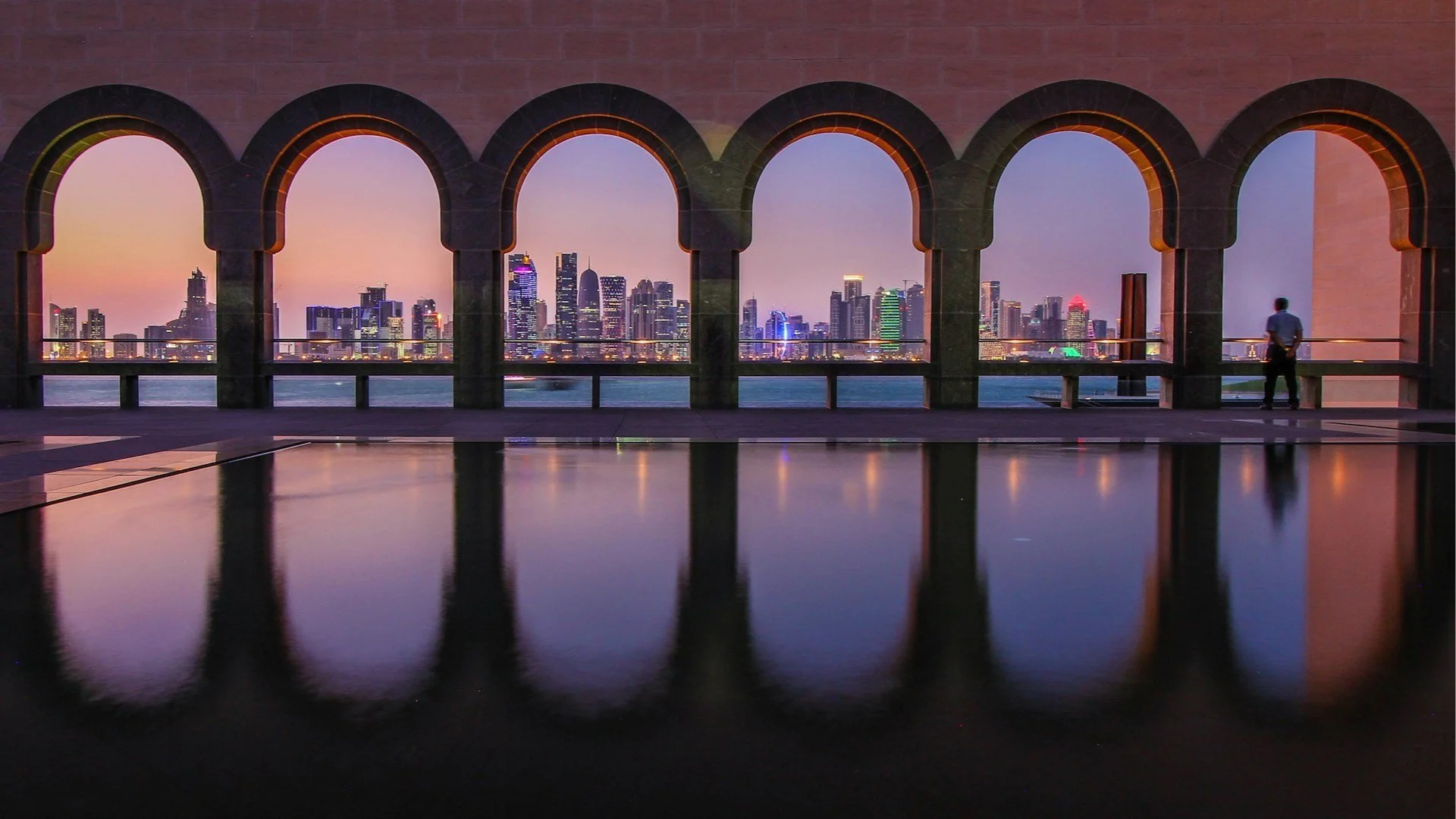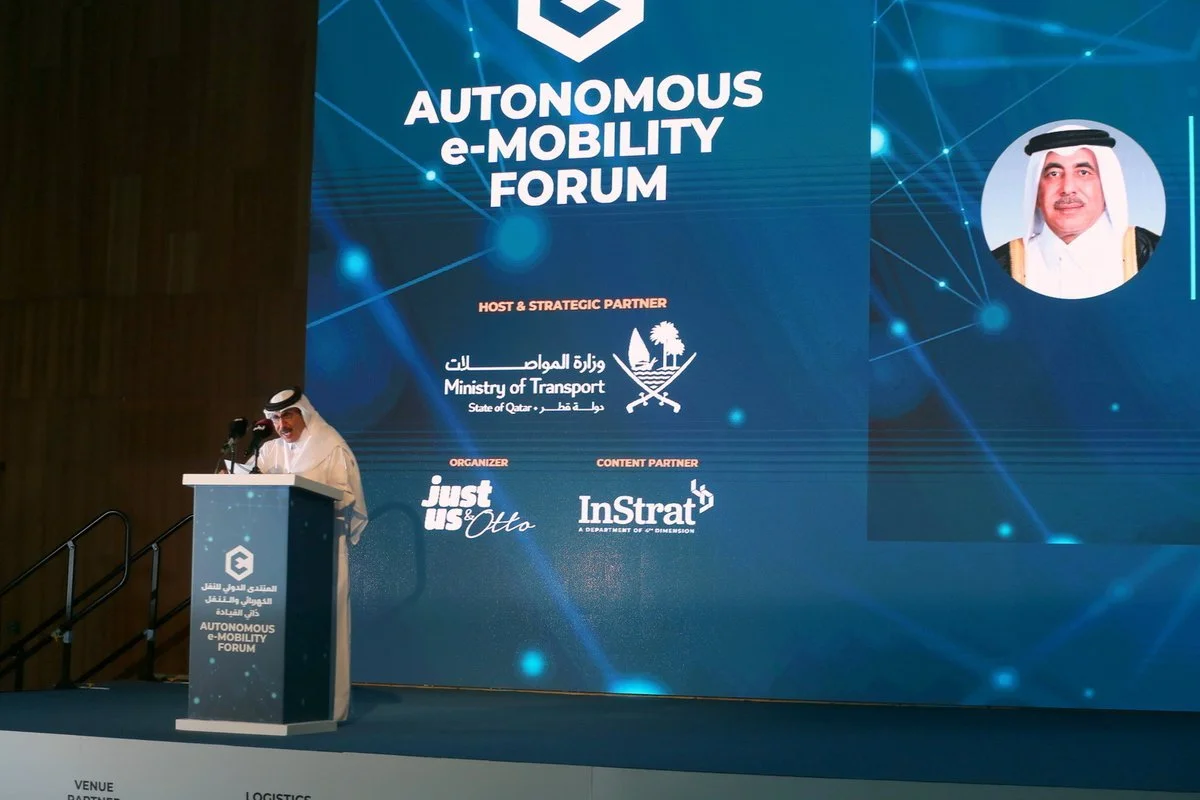Educating Youth for Global Complexity: Building Multilateral Competence
The added imperative of sensible cross-border collaboration in addressing problems of global urgency necessitates a complementing dimension of multilateral training and experience. In other words, tomorrow’s innovators and decision-makers need to also be tomorrow’s diplomats and bridge-builders.
A good example of how learning and international exchange can be meaningfully innovated, is the recently launched Multilateral Junior Academy on Global Challenges (MJA).
Supported by Qatar’s Ministry of Education and Higher Education, UNESCO’s Regional Office in Doha, the German Embassy in Qatar, the Goethe-Institut Gulf Region, and the knowledge platform InStrat, the initiative’s first edition has connected secondary students from Qatar and Germany to specifically explore the shared climate challenge.
A Fragile Truce in Doha
In Doha’s mirrored halls, far from the dust and misery of eastern Congo, two men shook hands this weekend. One represented the Democratic Republic of Congo; the other, the M23 rebel group that has seized cities, airports, and thousands of lives. They signed a Declaration of Principles, pledging to halt attacks, refrain from hate propaganda, and stop seizing new territory.
On paper, it is progress. A final peace agreement is promised by August 18, with initial steps by July 29. Qatar, which spent months quietly mediating since April, is being praised by the African Union as delivering a “milestone.”
But Congo has seen this before.
Qatar and the United States: The Twin Engines of Gaza Diplomacy
In the relentless churn of Middle East diplomacy, the latest attempt to broker a ceasefire in Gaza stands out for the unprecedented synergy between Qatar and the United States. Over the past 48 hours, these two actors have intensified their efforts, employing distinct yet complementary forms of leverage to coax both Israel and Hamas toward a fragile truce. The stakes are immense: the humanitarian crisis in Gaza is reaching catastrophic proportions, and the political calculus for all parties is fraught with risk. This analysis explores the evolving roles of Qatar and the US, the formidable obstacles in the path to peace, and why—despite daunting odds—there is cautious reason to believe that this diplomatic partnership could yield tangible progress. Optimism is warranted, but it must be tempered by realism about the pitfalls that could still derail the process.
Doha Can Take It!
While comparisons between Iran’s recent attack on Qatar’s Al Udeid air base and hellscapes created for entertainment are of course inappropriate, the Gulf state’s ability to keep calm and carry on was nevertheless intriguing. As the country’s air defenses sprang into life Doha’s shops and restaurants initially remained open, many delivery drivers stayed on the road, and people stopped to observe the unfolding drama in the skies. And then things got back to normal.
Multilateral Junior Academy on Global Challenges kicked off in Doha
Dr. Frank Himpel, Professor for Logistics at Germany’s Anhalt University of Applied Sciences and Director of its Institute for Logistics, alongside Dr. Rafah Alarrouqi, Qatar-based Visiting Fellow at the Institute for Logistics, kicked off the Multilateral Junior Academy on Global Challenges (MJA), with its first session hosted at the German International School in Doha.
The international youth dialogue initiative, supported by UNESCO’s regional office in Doha, the German Embassy Doha, the Goethe-Institut Gulf region, and the international expert platform InStrat, brought together more than thirty young students from Tariq Bin Ziyad Secondary School for Boys and Hassan Bin Thabit Secondary School for Boys in a highly engaging, interactive workshop.
Fostering close dialogue and exchange of daily life perspectives across countries and cultures, the launch in Qatar revolved around topics of sustainability, water, energy, and the climate. The exercise will be mirrored by partner schools in Germany, with students engaging in parallel discussions and later exchanging outcomes for joint reflection and further exploration.
Taking Off: Qatar’s Strategic Rise in Global Aviation
For Qatar, an important development took place recently as the International Civil Aviation Organization (ICAO), approved the final phase of its own airspace, the Doha Flight Information Region (FIR). Covering the management of air traffic over international waters north of Qatar, this was a critical step towards achieving complete airspace modernization.
Since gaining independence in 1971, Qatar had relied on Bahrain for air navigation. Realizing the limitations of using the Bahrain Flight Information Region (FIR), Doha requested the International Civil Aviation Organization (ICA0) for its own airspace in 2018.
In 2023, the Doha FIR was demarcated and Qatar was finally on its way to air independence. Winning membership of the ICAO for the first time in 2022, Qatar was also elected chair of the ICAO’s Air Transport Committee in 2024. At this time, Qatar Airways operates more than 250 aircraft, connecting 170 destinations across six continents.
What's Behind Taliban's Decision to Attend UN Conference in Qatar?
Qatar — which is playing a crucial role in engaging with the Taliban and providing them with a meeting place to negotiate with global powers — took on a difficult task considering its relatively small size in the Gulf Cooperation Council. But the effort has paid dividends, with Doha building solid diplomatic credentials at regional and global levels by connecting Afghanistan to third parties.
Minister of Transport Inaugurates International Autonomous e-Mobility Forum
Doha, Qatar: Minister of Transport HE Jassim bin Saif Al Sulaiti inaugurated the Autonomous e-Mobility Forum on Tuesday, hosted by the Ministry of Transport at the Qatar National Convention Center (QNCC) for two days.
The opening ceremony was attended by a number of Their Excellencies Ministers, high-profile state officials, and chairpersons of entities working in the transportation industry.
In his opening speech, HE Minister of Transport stressed that Qatar, under the wise leadership of HH the Amir Sheikh Tamim bin Hamad Al-Thani, will continue developing a coherent, sustainable, integrated, and eco-friendly transportation system in a fashion that enhances the country’s leading position on the world map of green and smart transportation, in addition to sharing its expertise in the field with the rest of the world through its real-life experiences of hosting major continental and international events, where transportation is a key success factor.
Region’s Affinity to Technology and Innovation is Key
Earlier this year, H E Lothar Freischlader, Germany’s Ambassador to the State of Qatar and Thomas Triller, Deputy Head of Mission responsible for economic affairs, met for a talk with representatives of the Autonomous e-Mobility Forum’s Executive Committee. Providing the perspective of a leading technology exporter and traditional automotive nation, the diplomats shared their observations and views on Qatar’s trajectory as a hub for dialogue, Qatari-German relations, global collaboration for a common good, and the potentials of autonomous e-mobility going forward. The German embassy indeed is the first diplomatic representation in Doha to utilize an electric vehicle as a staff car.
Can Innovation Diplomacy End the Climate Gamble?
With today’s global challenges urging equally global responses, an overlooked subset of diplomacy emerges as potentially pivotal: innovation diplomacy, a discipline related to the overarching concept of science diplomacy. Characterized by particularly collaborative prerequisites, science diplomacy, though lacking a precise definition, is usually understood across three dimensions, which could work similarly for innovation diplomacy:
Evolution and Prospects of Smart Mobility
As we approach the upcoming Autonomous e-Mobility Forum in Qatar, it’s timely to assess our current status in smart mobility and the hurdles that await us.
The connected, autonomous, shared, and electric vehicles (CASE) mobility framework has been our guidepost for over a decade, providing insights into the most significant opportunities and predicting developments within these domains. With the Autonomous e-Mobility Forum on the horizon, what is our progress report, and what challenges remain unresolved in these critical areas of mobility?
FIFA World Cup’s Economic Impact Will Extend Beyond Qatar
Qatar will become the first Arab state to host the prestigious FIFA World Cup. Having a population of less than 3 million, it is the smallest host country to ever organize the event. Being a popular sport in the Middle East, soccer unites the region culturally and socially.
Even though Doha has hosted other sports events like the IAAF World Athletics Championships, the Asian Football Confederation Cup and the World Men’s Handball Championship, and will be holding the Asian Games in 2030, the FIFA World Cup is the largest high-profile event to take place in the state of Qatar.
As the event edges nearer, it promises to have a wide impact as fresh opportunities are emerging for Qatar, other Gulf Cooperation Council (GCC) states and the surrounding region.
Qatar’s Growing Role as a Humanitarian and Diplomatic Hub
Qatar’s emergence as a key diplomatic partner during the evacuation was not a coincidence, but the result of the small peninsular emirate’s continued soft power diplomacy over the past 25 years. Along with an array of sophisticated long-term measures towards economic diversification, infrastructure, human and societal development across almost every sector, Doha’s calculations have included establishing Qatar as a diplomatic hub and an essential member of the current multilateral system.
Humanitarian aid has served as a linchpin for Qatar’s efforts to secure a leading role as an international mediator. While Qatar has repeatedly underscored the importance of separating politics from critical support for the Afghan people, humanitarian aid does have a long tradition in the Arab world.
Why International Conferencing Matters
It’s not an exaggeration to say that, prior to COVID-19, any number of international conferences took place on a weekly basis. Indeed, as the world moved into lockdown organisers responded by moving proceedings online or hosting hybrid events with strict hygiene protocols. And yet, as the recently-concluded COP 26 demonstrated, there still is an obvious need for policymakers to meet in person. The same can be said for smaller international events that have their own clout, and often are at the very foundation of positive policy discussions and developments.














